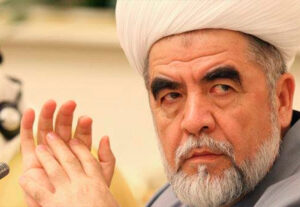SHARE WITH FRIENDS:
Of Sheikh Muhammad Sadiq Muhammad Yusuf
way of life and creation
Muhammad Sadiq ibn Muhammad Yusuf ibn Muhammad Ali was born on April 1952, 15 in the Andijan region.
Sheikh Muhammad Sadiq Muhammad Yusuf was one of the most famous scholars in Uzbekistan and the Islamic world. Sheikh Muhammad Sadiq was one of the leading members of the International Union of Islamic Scholars, the largest non-governmental organization of Islamic scholars.
Sheikh Muhammad Sadiq received his primary religious education from his father. After graduating from Soviet high school with honors in 1970, Muhammad Sadiq was admitted to the Mir Arab Madrasa in Bukhara. He then studied at the Higher Islamic Institute in Tashkent, graduating in 1975. In 1976, Sheikh Muhammad Sadiq Muhammad Yusuf was admitted to the ad-Dawa al-Islami National Islamic University in Libya, and successfully graduated with financial incentives. His years of study in Libya introduced Sheikh Muhammad Sadiq Muhammad Yusuf to the next generation of Muslim scholars, especially to the Arab world and even countries as far away as Japan.
In 1997, Sheikh Muhammad Sadiq Muhammad Yusuf was appointed head of the Federation of Muslim States and the Commonwealth of Independent States, part of the Robita al-Islamiya (League of the Muslim World), an international Islamic organization in Saudi Arabia. Sheikh Muhammad Sadiq Muhammad Yusuf was to this day a permanent member of the board of this organization.
Creative activity
Sheikh is the author of many Islamic books. Between 1994 and 2000, 60 percent of the sheikh's work, that is, about thirty popular articles and about twenty-five books, as well as manuals, were published. Most of these works have been written in Uzbek, some of which have been translated into Russian and other CIS languages.
During the above period, the Sheikh published many works by Sheikh Muhammad Sodiq of the Islamic Cultural Center in Osh, Kyrgyzstan. Many books by Sheikh Muhammad Sadiq Muhammad Yusuf, such as "Tafsiri Hilal", "Imagination about Sufism", "Controversy", "Religion is Advice", "Spiritual Education" and many others, are still popular among readers. is coming. The Sunni Aqeedah and the 39-volume Hadith and Life, which are being republished at the request of readers, are also among the most respected books among the people of Uzbekistan. Founded in 2004 www.islam.uz the web project was personally led by Sheikh Muhammad Sadiq Muhammad Yusuf. This site would provide an opportunity to ask Sheikh Muhammad Sadiq Muhammad Yusuf a direct question.
Organizations of which the sheikh is a member
Sheikh Muhammad Sadiq Muhammad Yusuf has in recent years devoted himself to science and da'wah as well as activities to promote religious culture. The sheikh is a member of the following international organizations:
-
-
The inaugural meeting of the World Islamic Association in Mecca
-
World Sufi Association
-
-
He is a member of the General Secretariat of the Board of Islamic Peoples of the World
-
He is a member of the World Da'wah Association
-
He is a member of the World Council of Ulema
-
He is a member of the World Islamic Association in Islamabad
-
He is a member of the Executive Committee of the World Assembly of Scholars in Mecca
-
He is a member of the World Association of Mosques
-
He is a member of the Academy of Islamic Thought at the Ali Bayt Foundation in Jordan
Sheikh's academic degrees
-
A graduate of the Imam Bukhari Higher School in Tashkent
-
He is a graduate of the World Islamic Propaganda Faculty in Tripoli
-
Lecturer on tafsir, ulumul Qur'an and faroiz at the Imam Bukhari High School in Tashkent
-
He worked as a deputy director of the Imam Bukhari High School in Tashkent
-
He worked as a director at the Imam Bukhari High School in Tashkent
-
He served as chairman and mufti of the Central Asian and Kazakh Muslim Religious Board
-
He worked as a teacher in the department of higher education at the Tashkent Islamic University.

I was just looking for this info for a while. After 6 hours of continuous Googleing, finally I got it in your web site. I wonder what's the lack of Google strategy that do not rank this type of informative websites in top of the list. Generally the top web sites are full of garbage.